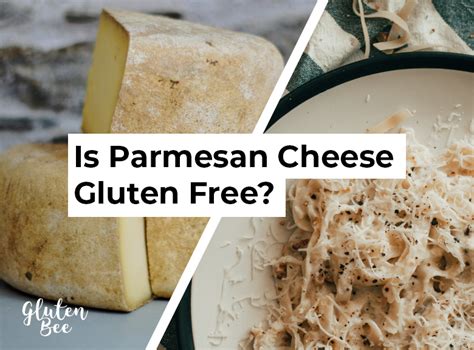Parmesan cheese is a popular and iconic Italian cheese that is often enjoyed worldwide. However, for individuals with gluten intolerance or sensitivity, it's essential to know whether Parmesan cheese is gluten-free. In this article, we'll delve into the world of Parmesan cheese and explore its gluten content.
What is Parmesan Cheese?
Parmesan cheese, also known as Parmigiano-Reggiano, is a hard, aged cheese made from cow's milk. It originates from the Parma and Reggio regions in Italy, where it has been produced for centuries. Parmesan cheese is known for its rich, nutty flavor and crumbly texture, making it a staple in Italian cuisine.

Is Parmesan Cheese Gluten-Free?
The short answer is: most Parmesan cheese is gluten-free. However, it's crucial to understand the cheese-making process and potential sources of gluten.
Parmesan cheese is made from cow's milk, which is naturally gluten-free. The cheese-making process involves adding rennet, a natural enzyme, to separate the curds from the whey. The curds are then aged for a minimum of 12 months, during which time they develop their characteristic flavor and texture.
However, some Parmesan cheese may be produced in facilities that also process gluten-containing grains, such as wheat, barley, or rye. This can lead to cross-contamination and potential gluten exposure.
Types of Parmesan Cheese
There are two main types of Parmesan cheese: Parmigiano-Reggiano and Parmesan.
- Parmigiano-Reggiano: This is the authentic, Italian Parmesan cheese, produced exclusively in the Parma and Reggio regions. It's made from raw cow's milk and aged for a minimum of 12 months.
- Parmesan: This is a generic term for Parmesan-style cheese, which can be produced anywhere in the world. It may be made from cow's milk, sheep's milk, or a blend of both.
When it comes to gluten content, both types of Parmesan cheese are generally gluten-free. However, if you have celiac disease or a severe gluten intolerance, it's essential to choose a Parmigiano-Reggiano cheese to minimize the risk of cross-contamination.
Gluten-Free Certification
If you're concerned about gluten content, look for Parmesan cheese with gluten-free certification. Some manufacturers may obtain certification from organizations like the Gluten-Free Certification Organization (GFCO) or the Celiac Support Association (CSA).
Keep in mind that gluten-free certification is not mandatory, and many Parmesan cheese producers may not choose to obtain certification.
Reading Labels
When shopping for Parmesan cheese, read the labels carefully. Check for the following:
- Ingredients: Ensure that the only ingredients listed are milk, rennet, and salt.
- Allergen warnings: If the label warns of potential gluten exposure, it's best to choose a different brand.
- Gluten-free certification: Look for certification from reputable organizations.
Conclusion
In conclusion, most Parmesan cheese is gluten-free, but it's essential to choose a reputable brand and be aware of potential cross-contamination. If you have celiac disease or a severe gluten intolerance, opt for a Parmigiano-Reggiano cheese to minimize the risk of exposure. Always read labels carefully and look for gluten-free certification to ensure that your Parmesan cheese is safe to enjoy.






Is all Parmesan cheese gluten-free?
+Most Parmesan cheese is gluten-free, but it's essential to choose a reputable brand and be aware of potential cross-contamination.
What is the difference between Parmigiano-Reggiano and Parmesan cheese?
+Parmigiano-Reggiano is the authentic, Italian Parmesan cheese, produced exclusively in the Parma and Reggio regions. Parmesan is a generic term for Parmesan-style cheese, which can be produced anywhere in the world.
How can I ensure that my Parmesan cheese is gluten-free?
+Read labels carefully, check for gluten-free certification, and choose a reputable brand to minimize the risk of cross-contamination.
